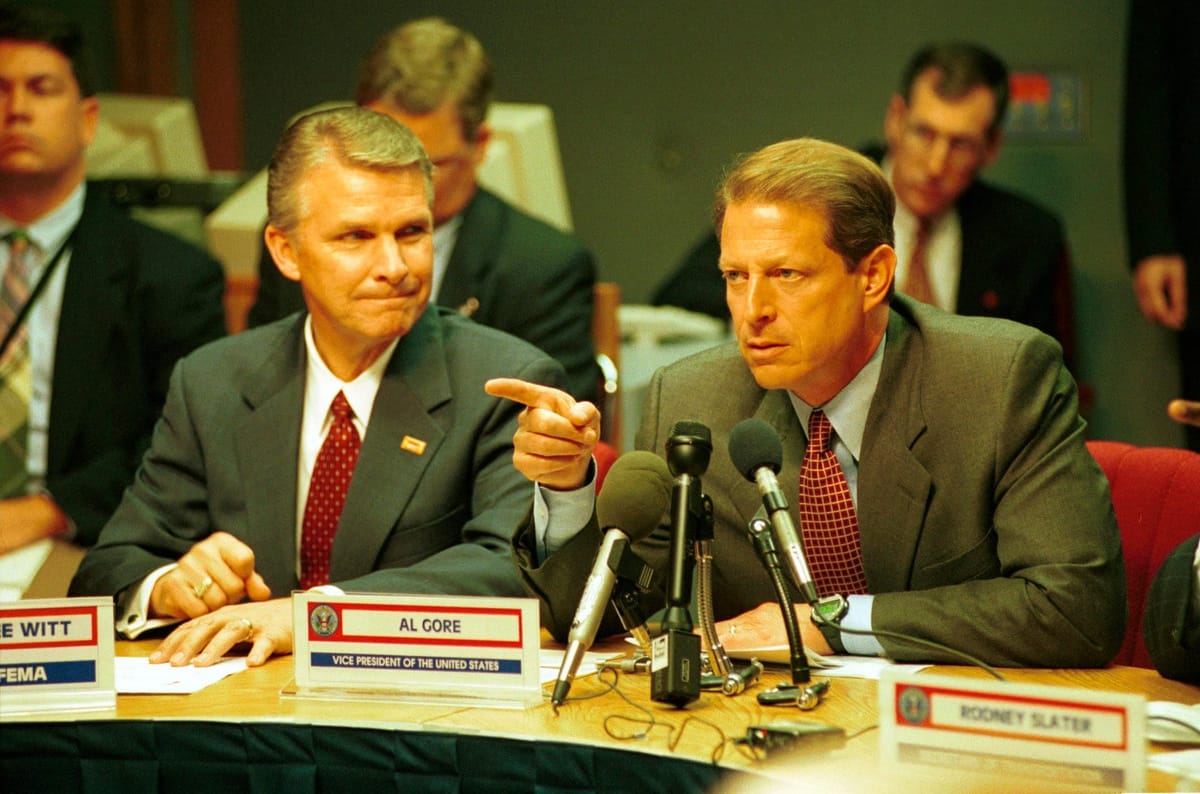Decoding Politician Speak

Politicians usually make for a lousy interview.
There are exceptions, but it's a safe bet that if a legislator is on a show you like, it'll be as fun as watching the grass grow.
The reason comes down to three highly strategic (for political parties), infuriating (for the listening audience) words: Stay on message.
Interviewer: How are you?
Politician: I am fighting for working families!
Interviewer: How are you doing that?
Politician: By fighting!
Interviewer: Can you provide us with more detail?
Politician: I fight a lot. And when I get tired of fighting, I fight harder! FOR WORKING FAMILIES! FIGHT! FIGHT! WORKING FAMILIES! ME!
Politicians, especially those in Congress, get a set of talking points, often pulled from the party (quite literally "the party line") to encourage members to sing from the same songbook.
Here, party doesn't mean the formal political party like the Democratic National Committee or the Republican National Committee. It means the leadership of a politician's party in their chamber.
A politician's Press Secretary (or in the case of state legislators, usually their party's press people) encourages the boss to stick to the talkers and to never forget: don't answer the question they're asking; answer the question you want to answer.
Take this 2015 NPR interview with President Obama on the Iran nuclear deal:
NPR: Are you entirely comfortable going forward with a historic deal knowing that most of the people's representatives are against it?
PRESIDENT OBAMA: Well, what I know is, is that, unfortunately, a large portion of the Republican Party, if not a near unanimous portion of Republican representatives, are going to be opposed to anything that I do...
Rather than answer the question (are you comfortable with this?), the President made the political point he wanted to make (the Republicans will be opposed to anything I do).
Great communicators - which is to say, great listeners - suggest paying attention to what's being said and what's not being said.
In this instance, here's what's not being said: The problem isn't me, it's House Republicans.
Or take this 2024 CBS interview with Senate Minority Leader Mitch McConnell.
CBS: President Biden said he condemns the antisemitic protests and condemns those who don't understand what's going on in Palestine, with the Palestinians. Do you agree with his statement?
SEN. MCCONNELL: It's not a question of whether I agree, I can speak for myself.
What's not being said: You won't catch me agreeing with the President.
Or here's another one from CBS with Michigan Governor Gretchen Whitmer on abortion:
CBS: Are you satisfied with the Biden administration's messaging on these specific matters related to women?
GOV. WHITMER: You know, I know that this administration is doing the work and they roll up their sleeves, and I appreciate that. They've been phenomenal partners to us here. I think all Democrats and all people who are- are on the right side of this issue need to use their voices, need to be very clear to the American public.
What's not being said: I'd like the administration to do more, and I want to signal that to my audience without directly condemning the Biden team.
Here are a few tells that a politician - or anyone, really - is going to answer their own question:
- They start a statement with "Look..."
- They pivot by saying something like "The actual issue at stake here is..." or "The real problem is..." or "What matters the most..."
- They use a bridging statement like "Well, if we zoom out..."
If you'd rather have a tooth pulled than listen to that, you aren't alone. Political messaging can be maddening to the max (which begs the question, what pivot would Mad Max use?).
Every so often, a politician says the quiet part out loud. Like back in October of 2023, when North Dakota Representative Kelly Armstrong explained why he was supporting Representative Jim Jordan for Speaker:
"He's the best person to keep us out of a government shutdown..."
So far, probably pretty on message.
"...and the best person to keep conservative media off our backs as we face a shutdown."
Probably not at all on message. And probably quite true.
Being on message doesn't mean it's not true (though for some, that's the case) – Congressman Armstrong may have truly believed Congressman Jordan was the best person to keep them out of a shutdown. Being on message means it's the truth politicians are encouraged to drive home.
So the next time you hear a politician speak, listen for what's not being said, the message underneath the message. It's just as important - if not more important - than what is being said.
